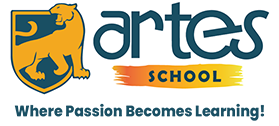
The Secret Ingredient: Parent Involvement in Early Education and Why It's So Powerful
From the moment a child is born, their parents are their first and most influential teachers. This crucial role doesn’t diminish when a child enters the world of formal early education, whether it’s a parent-toddler program, daycare, or preschool. In fact, active and meaningful parent involvement becomes a powerful “secret ingredient” that significantly enhances a child’s learning journey and overall well-being.
Why is parent involvement so vital in these early years? The reasons are manifold, creating a positive ripple effect that benefits the child, the family, and even the educational setting itself.
A Bridge Between Home and School
Early education is often a child’s first significant step outside the familiar embrace of home. When parents are actively involved, they help create a vital bridge between these two worlds. This connection provides a sense of security and continuity for the child, making the transition smoother and fostering a feeling of belonging in the educational environment. Knowing that their home life and school life are connected helps children feel more confident and secure, allowing them to focus better on learning and exploration.
Enhanced Child Development and Academic Outcomes
Numerous studies have consistently shown a strong correlation between parent involvement and positive child development outcomes:
Improved Academic Performance: Children whose parents are engaged in their early education tend to show better pre-literacy and numeracy skills, higher academic achievement, and a greater likelihood of success in later schooling. This involvement signals to the child that learning is valued at home and school.
Stronger Social-Emotional Skills: When parents are involved, they often reinforce the social-emotional skills being taught in the classroom, such as sharing, cooperation, and empathy. This consistent messaging helps children internalize these important skills.
Increased Motivation and Engagement: Children are more likely to be enthusiastic and engaged learners when they see their parents taking an active interest in their education. This involvement can spark curiosity and a genuine love for learning from a young age.
Better Attendance and Fewer Behavioral Issues: Children feel more connected to their learning environment when their parents are involved, leading to improved attendance and a reduction in behavioral challenges.
Strengthening the Parent-Child Bond
Parent involvement in early education isn’t just about academic benefits; it also profoundly impacts the parent-child relationship:
Shared Experiences and Understanding: Participating in classroom activities, attending events, or even just discussing school experiences creates shared moments and allows parents to gain a deeper understanding of their child’s learning style, strengths, and challenges.
Enhanced Communication: Involvement often opens up new avenues of communication between parents and children. Children are more likely to share their school experiences and feelings when they know their parents are interested and supportive.
Modeling Lifelong Learning: When parents actively participate in their child’s education, they model the importance of lifelong learning and demonstrate that education is a valuable and ongoing process.
Building a Stronger Educational Community
Parent involvement extends beyond the individual child and family, contributing to a more vibrant and supportive educational community:
Valuable Insights for Educators: Parents possess unique knowledge about their child’s personality, interests, and needs, which can provide valuable insights for teachers and help them tailor their approach.
Increased Support for Programs: Involved parents often become advocates for the early education program, volunteering their time, contributing resources, and fostering a stronger sense of community among families and educators.
A Collaborative Partnership: When parents and educators work together as partners, sharing goals and communicating openly, it creates a more effective and enriching learning environment for all children.
Ways Parents Can Get Involved (Even with Busy Schedules)
Parent involvement doesn’t require a complete overhaul of your schedule. Even small, consistent efforts can make a significant difference:
Talk to your child daily about their school day.
Read books together that might connect to classroom themes.
Help with simple homework or learning activities provided by the teacher.
Attend school events and parent-teacher conferences.
Volunteer in the classroom if your schedule allows.
Communicate regularly with your child’s teacher.
Show genuine interest in their learning and celebrate their achievements.
Parent involvement in early education is not a luxury; it’s a necessity. It’s the powerful thread that weaves together the learning experiences at home and in the classroom, creating a strong and supportive foundation for a child’s future success and well-being. By actively participating in their child’s early learning journey, parents become true partners in their growth, making a profound and lasting difference.
